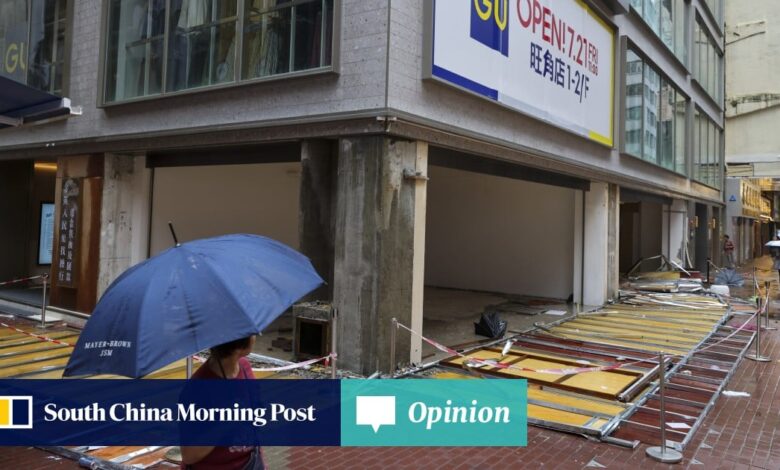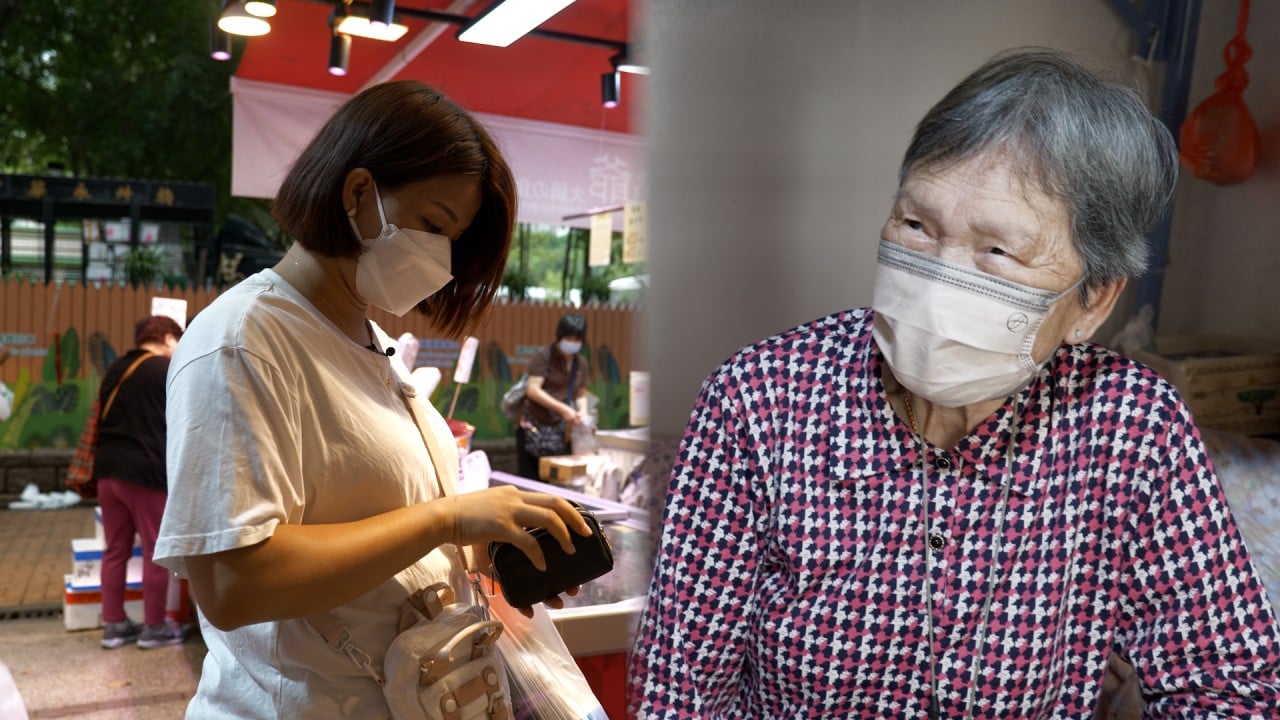Opinion | Hong Kong must brace for long slog of economic recovery with patience and a brave face

[ad_1]
And the community of foreign-owned companies in Hong Kong (including those with mainland parents) has grown to 8,978 last year, 224 more than in 2018.
But there is still much to be gloomy about, as any stroll past the shuttered shops in Causeway Bay or SoHo quickly makes clear. Latest statistics show that food service outlets, for example, have shrunk by over 8 per cent since 2018 (from 15,660 to 14,318 in 2021), with food service jobs down by 20 per cent (to 217,000). Retail employment is also down by about 10 per cent.
Given the brazen hostility in 2019 of many Hongkongers to mainland Chinese, it is moot whether we will see a quick tourist recovery.

Perhaps the worst of the government’s economic challenges is the eagerness of so many in the West to write Hong Kong off.
Look up to Hong Kong? Dubai is carving out its own impressive path
Look up to Hong Kong? Dubai is carving out its own impressive path
A quick comparison shows just how far Hong Kong has slipped behind. In 2000, Singapore’s economy was just over 55 per cent of Hong Kong’s, and the UAE’s was at 60 per cent, according to World Bank gross domestic product data at current prices. Last year, Singapore’s GDP was 30 per cent larger than Hong Kong’s, while the UAE’s was 41 per cent larger.
More importantly, they have recovered much more rapidly from the pandemic than Hong Kong, and there is little evidence we are well placed to catch up.
Most global rankings, in which Hong Kong used to impress the world, now tell a forlorn tale. Take Kearney’s Global Cities report, for example, in which Hong Kong has tumbled since 2019 from 5th to 10th place. Or the Mori Memorial Foundation’s Power City Index: Hong Kong largely sat in the top 10 up to 2020, but has now collapsed to 23rd, while Dubai is up to 11th from 23rd in 2017.
Whatever our views about the biases and gross simplifications of such global polls, they feed Western prejudices and will be tough to reverse. For Chan, that means patience and a brave face.
David Dodwell is CEO of the trade policy and international relations consultancy Strategic Access, focused on developments and challenges facing the Asia-Pacific over the past four decades
[ad_2]
Source link






